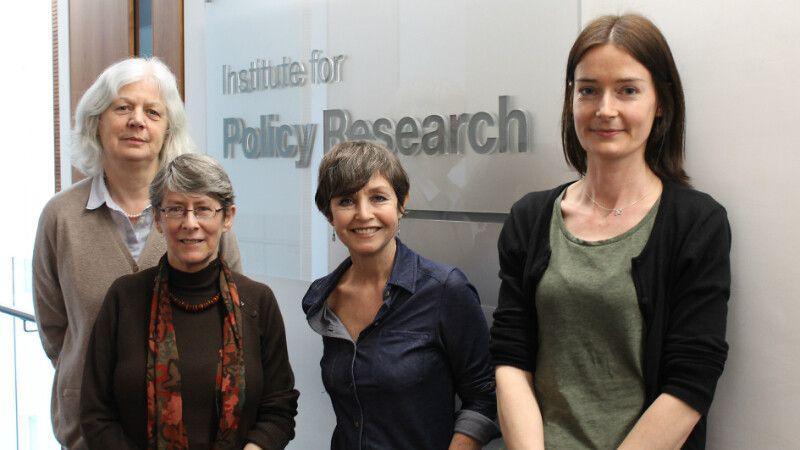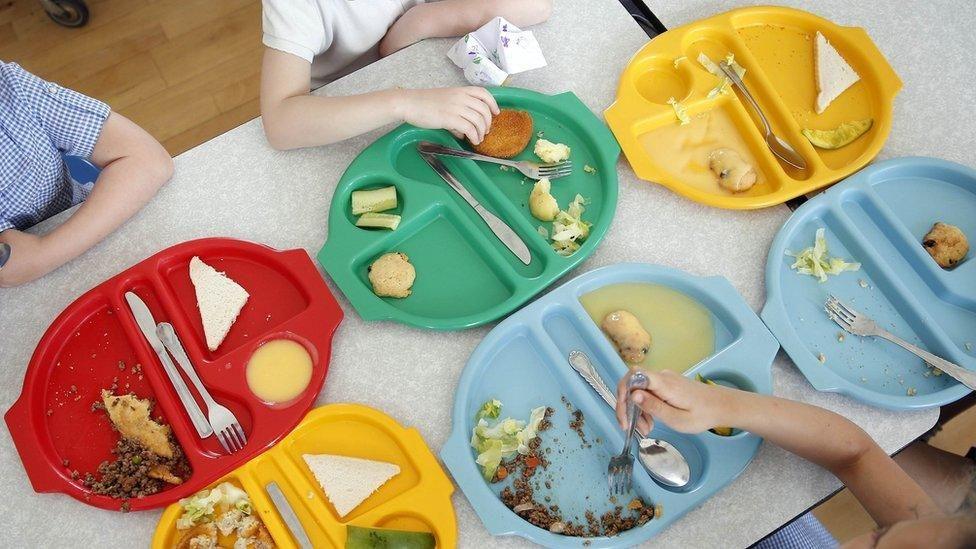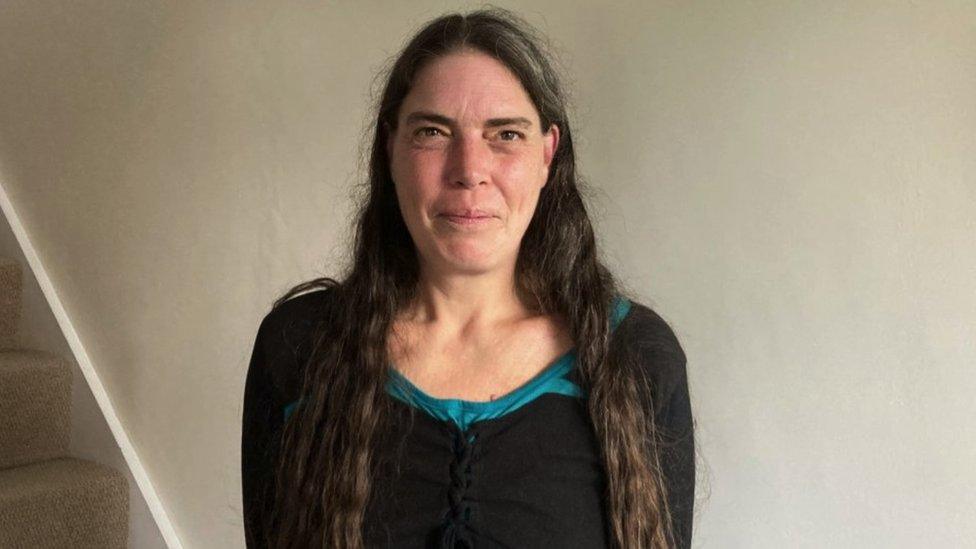Benefits policy 'punishes' people for working more

Aurora says she feels "trapped" and struggles to provide for her two young children under the existing thresholds
- Published
Fresh calls have been made for the government to review means-tested help beyond Universal Credit.
The report, published by the University of Bath (UoB), reviews the options for reductions in council tax and help with utility bills, free school meals and school uniform grants.
Aurora, a widowed mother of two, says her rent is covered by benefits, but she works to cover living costs. Her income leaves her ineligible for means-tested help.
In response, the government has said it is committed to supporting low-income families by extending the Household Support Fund by £421m.
Aurora's rent costs £1,850 a month for a small house in West London.
Because it is covered by her benefits, she says it is impossible to do extra work as she would never earn enough to cover rent and living costs for her children on minimum wage.
She currently works up to 28 hours per week in a residential care home, which leaves her outside the earning threshold to qualify for additional means-tested help.
She told the BBC: "I am being punished if I work longer hours. There is no way I can get out of this trap."
Financially worse-off
Dr Marsha Wood is a research associate with the Institute for Policy Research at the University of Bath.
She thinks their report reveals a distressing paradox, where earning more can leave low-income workers worse off financially.
She said: “When people's earnings go up, they might end up worse off financially, which completely undermines Universal Credit's promise to ‘make work pay'.
"It’s frustrating to realise that the extra money in their pockets doesn’t outweigh the benefits they lose, and this can lead to significant financial struggles.
"These ‘cliff edges’ discourage individuals from working longer hours or striving for higher pay."

The UoB team looking into Universal Credit, from left to right: Professor Jane Millar, Fran Bennett, Rita Griffiths and Marsha Wood
Dr Rita Griffiths, co-author of the report and fellow researcher at the University of Bath, believes it is time for a policy review.
"The government pledged to review Universal Credit in the Labour Party manifesto and make work pay. We urge the government to prioritise delivering on this promise.”
After winning the election in July, the Prime Minister announced a new Child Poverty Strategy, being driven by the Work and Pensions Secretary Liz Kendall.

Children lose access to free school meals if their parents earn more than £616 per month
Ms Kendall said it would “turn the tide on rising poverty levels" so that "every child no matter where they come from has the best start in life.”
Despite this mission statement, this latest report finds that many working families cannot access benefits and means-tested help which would alleviate child poverty.
This is due to the very low earning thresholds and strict withdrawal of entitlement as earnings rise, which applies to most schemes.
For example, in England, as soon as you earn just £1 more than £7,399 a year, your child loses entitlement to free school meals.
In response, the government has said it is committed to supporting low-income families by extending the Household Support Fund by £421m.
It added: “As well as our commitment to reviewing Universal Credit so people receive the support they need, we are taking action to help people into work and break down the barriers to opportunity.”
Follow BBC Somerset on Facebook, external and X, external. Send your story ideas to us on email or via WhatsApp on 0800 313 4630.
Related topics
- Published13 May 2024

- Published7 November 2023
